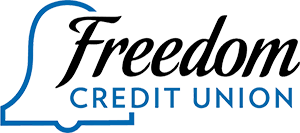Safeguard your personal information through these unprecedented times.
Cybercriminals use deception and take advantage of fear to defraud their unsuspecting victims.
This means it’s more important than ever to stay aware and be vigilant of COVID-19 , or Coronavirus, scams so you can help prevent fraud.
Phishing Scams
Phishing for personal data and online credentials can take many forms. They can look like emails, text messages, social media or other online messages that appear to have been sent from a familiar company or even a friend. Recent phishing schemes of this nature include impersonating the World Health Organization (WHO), the Center for Disease Control (CDC), and other reputable sources. This even includes messages stating someone you came in contact with tested positive for the virus and to click on a link for instructions on what to do. Never click links in these types of messages or emails—instead, go directly to the trusted company’s website.
Charitable Giving
As the pandemic continues to affect the United States, people may need help – whether for supplies, medical care or something else. But be wary of requests from other people – no matter how they reach out to you. The Federal Trade Commission (FTC) recommends researching charities online (not through links provided in online messages or emails). Be careful how you’re being asked to provide funds as well, because a legitimate charity will never ask you to pay in with a retailer gift card or anything else that is not a check or credit card. Do not let them rush or guilt you into donating.
Elder Fraud
According to the AARP Public Policy Institute, one in five elderly Americans are victims of financial exploitation each year. Watch for the following types of scams that could impact you or your older loved ones:
• A phone call from someone posing as a grandchild or loved one claiming to need money for COVID-19 medical treatment.
• A special stock market deal.
• A cybercriminal posing as a non-profit or religious organization seeking donations.
Check Fraud
Check fraud is a type of scam where a fraudster writes you a bad check to deposit into your legitimate banking account. Freedom Credit Union has a relationship with you and may ask questions about the check and where it came from. We may even put an extended hold on it. We do this to protect you, and us. Sometimes these checks come back as bad after the funds are released. Please remember that you are responsible for paying back any money you have withdrawn if a check is returned as fraudulent. If someone asks you to deposit a check for them, or they write you a check for more than you are expecting, be wary of this outcome.
Loan Fraud
With nearly $400 billion on the line between the Economic Injury Disaster Loans (EIDL) and the Paycheck Protection Program (PPP), it shouldn’t be a surprise that there would be fraudsters targeting small business owners during these already challenging times. Avoiding small business lending scams and fraud related to COVID-19 requires that you are diligent and on the lookout for grant fraud, loan fraud, and phishing scams. Here are some things to be on the lookout for:
• If anyone contacts you claiming to be the SBA, suspect fraud. The SBA does not contact individual businesses for disaster loans or grants. Don’t share any personal or business information with the caller.
• You are promised loan approval but only if you pay an upfront fee or offers a high interest bridge loan. The SBA does not guarantee approval before an application is submitted and reviewed.
• Make sure any correspondence from the SBA is legitimate. Emails will come from accounts ending in sba.gov. Verify and cross-reference any information you receive with information available at www.sba.gov.
Monitoring Your Accounts
It’s important to check your financial account balances frequently to monitor activity. How quickly you report fraud to Freedom Credit Union could affect whether you are responsible for all or a portion of the fraudulent checks or charges.
It’s also important to open and review statements immediately, whether you’re receiving them digitally or via hard copy through the mail. Also, do not share your PIN, online banking login or password with anyone. If you do, and they commit financial fraud, you may ultimately be responsible for any fraudulent charges or withdrawals because you provided them access to your accounts.
Always remember that Freedom Credit Union is here for you. If you have questions on transactions, emails, messages or checks you may have received, contact us at 413-739-6961 or toll free at 800-821-0160.

